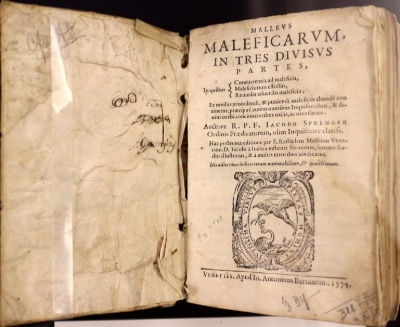A Short History of The Malleus Maleficarum
- Feb 26, 2019
- 2 min read

I've recently been reading a lot of literature that keeps mentioning the Malleus Maleficarum and it's involvement in what became the Salem Witch Trials and I became so fascinated with this tome that I thought I would delve a little bit deeper into iut's history to see what it is really all about.
The Malleus Maleficarum was written by a discredited Catholic clergyman named Heinrich Kramer in 1486. Translated as "the hammer of witches" the Malleus Maleficarum is well-known for it's endorsement of the extermination of witches and details a legal and theological theory to condemn sorcery as a criminal status.
Written by clergyman Heinrich Kramer, it was suggested that the guide was his act of self-justification and revenge when he was expelled from his city of Innsbruck for one of the first recorded attempts of prosecuting alleged witches. It was his own explanation of his views on witchcraft, his refutes against disagreements that witchcraft didn't exist, and to discredit those who were skeptic about his claims. It was submitted to the Catholic church for approval and was even given an endorsement called the Papal Bull, a document signed by the Pope himself as an official church opinion.
The Malleus Maleficarum was later condemned for being inconsistant with Catholic doctrines of demonology, but not before the cries of "witch!" spread like wildfire.
This tome was used as a guide on recommended procedures and tortures for those trialled as witches and was a major influencer in the prosecution of witchcraft during the 16th and 17th Centuries. It is seperated into three sections: the first a philosophical explanation of witches’ existence, the second is a clergy guide to recognize a witch, and the third is a legal manual for the accusation, persecution, and death penalty for witchcraft.
Even nowadays, the Malleus Maleficarum is well-regarded as being the second most popular book ever sold just after the bible, and you can even read the translation of the tome online today. While it has been denounced by Catholics, pagans, wiccans and churchman a like, it is hard to deny the overall effect this particular book had on the lives of hundreds and thousands of people who were effected in the witch hysteria.








Comments